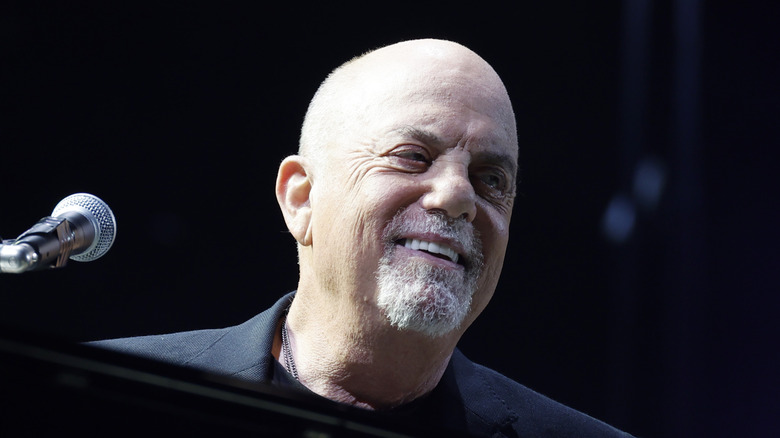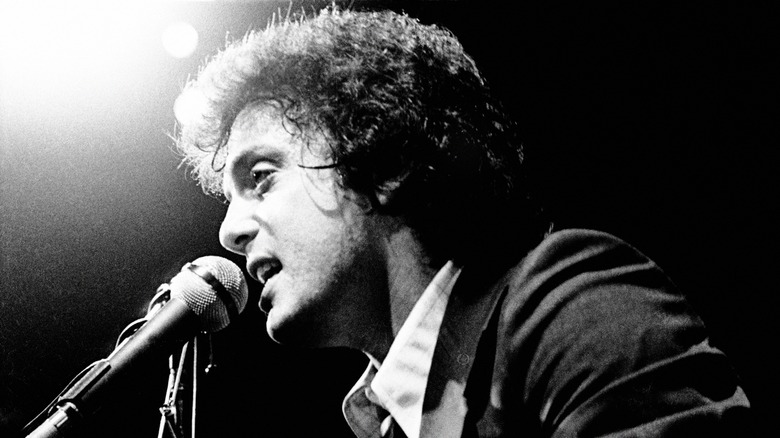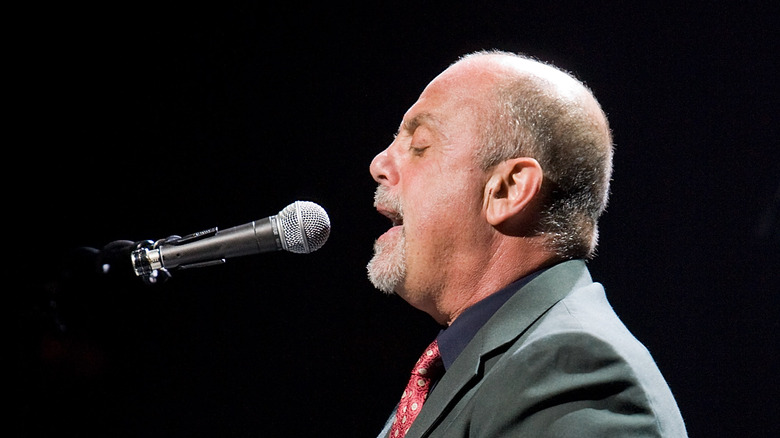The Real Meaning Behind Billy Joel's Piano Man
Billy Joel sat behind the piano at the Executive Room, a Los Angeles cocktail bar on Wilshire Boulevard. He already had an album out as a singer-songwriter — "Cold Spring Harbor" — but for six months in 1972 and into the next year, he was playing six nights a week, from after dinner to 2 a.m., under an assumed name (per "Billy Joel: The Definitive Biography"). His stint as a piano crooner named "Bill Martin" stemmed from his first recording contract.
"I knew I had to get out of this deal," he recounted on "Inside the Actor's Studio." "I realized I had signed away publishing rights, licensing rights, copyrights ... I decided the only way I was gonna get out of this deal was to ... disappear. I had to drop off the face of the earth." He moved to LA with his then-girlfriend and later first wife, Elizabeth Weber. The many characters he met in those six months found their way into a song that helped boost his career — "Piano Man," per "Billy Joel: The Life and Times of an Angry Young Man."
Free drinks and good tips
A cut-rate Hollywood talent agency had gotten Billy Joel the gig at the piano bar where he received union-scale pay, good tips, and free drinks, per "Billy Joel: The Definitive Biography." Elizabeth Weber worked there as a waitress as well. While Joel played, he began collecting the raw material that would become the basis for "Piano Man." The regulars provided a lot of help in that regard.
"When he sings 'the waitress is practicing politics,'" that was Elizabeth," Hank Bordowitz, the author of "Billy Joel: The Life and Times of an Angry Young Man," told the New York Post. "There really was a Davy who was in the Navy, and probably would be for life. Paul was a real estate broker, but he wanted to be a novelist." According to "Billy Joel: The Definitive Biography," Angelique Norton, who owned the bar with her husband Russell, recalled that "there'd been so many piano players coming and going, but he stood out ... and he had a following."
A signature song
When Billy Joel didn't know an old standard a patron requested, he would fake it by playing a series of major 7th chords. "If you play enough chords like that, it starts to sound like every standard and they'd still put a buck in the brandy glass," he recalled on "Inside the Actor's Studio." "You realized that after a certain hour, they were so blitzed they didn't know what the hell I was playing."
The song became the lynchpin and the title for his next album, "Piano Man," which came out on Columbia Records. The company launched the single on November 2, 1973, with the album coming out a week later, per "Billy Joel: The Life and Times of an Angry Young Man." The song rose up the charts, peaking at No. 4 on the Adult Contemporary charts and 25 on the Billboard pop singles chart, per the Library of Congress. "Piano Man" would become one of Joel's signature songs, immortalizing his six-month foray into the life of a piano bar crooner named Bill Martin.


